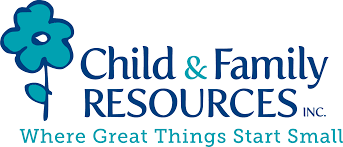
The Importance of Family Resources: Building Stronger Bonds and Support Systems
Family is the cornerstone of society, providing love, stability, and guidance to its members. In today’s fast-paced world, families face numerous challenges that can strain relationships and create barriers to effective communication. This is where family resources play a crucial role in bridging gaps, offering support, and strengthening bonds within the family unit.
What Are Family Resources?
Family resources encompass a wide range of tools, services, and support systems designed to help families navigate various aspects of life. These resources can include but are not limited to:
- Parenting classes and workshops
- Counseling services for individuals and families
- Financial assistance programs
- Childcare services
- Social support groups for parents and children
- Educational resources for children and parents
The Benefits of Family Resources
Access to family resources can have a profound impact on the well-being of all family members. Here are some key benefits:
- Improved Communication: Family resources can provide tools and strategies for effective communication within the family, fostering understanding and empathy among members.
- Enhanced Parenting Skills: Parenting classes and workshops can help parents develop positive parenting techniques, leading to healthier parent-child relationships.
- Emotional Support: Counseling services offer a safe space for family members to express their thoughts and feelings, leading to emotional healing and growth.
- Financial Stability: Financial assistance programs can alleviate financial stress within the family, allowing parents to focus on providing for their children’s needs.
- Social Connections: Social support groups provide opportunities for families to connect with others facing similar challenges, reducing feelings of isolation and building a sense of community.
How to Access Family Resources
Families can access resources through local community centers, schools, churches, nonprofit organizations, government agencies, and online platforms. It is essential for families to research available resources in their area and reach out for assistance when needed. By proactively seeking out support services, families can strengthen their resilience and create a nurturing environment for all members.
In Conclusion
In conclusion, family resources play a vital role in enhancing the well-being of families by providing tools, support systems, and guidance in times of need. By utilizing these resources effectively, families can build stronger bonds, overcome challenges together, and create a loving environment where every member feels valued and supported.
Remember that seeking help is a sign of strength, not weakness. Together as a community, we can empower families to thrive and flourish amidst life’s ups and downs.
Understanding Family Resources: Basic Needs, Examples, Importance, and Key Sources
- What are family resources basic needs?
- What are family resources examples?
- Why are family resources important?
- What are the six sources of family resources?
What are family resources basic needs?
Family resources basic needs encompass essential tools, services, and support systems that are fundamental to the well-being and stability of a family unit. These needs typically include access to adequate housing, nutritious food, reliable healthcare, quality education, and a safe environment. Additionally, financial security, emotional support, effective communication skills, and social connections are vital components of fulfilling family resources basic needs. Meeting these foundational requirements ensures that families can thrive, maintain healthy relationships, and navigate life’s challenges with resilience and strength.
What are family resources examples?
Family resources examples encompass a wide range of valuable tools and services that support and strengthen families in various aspects of life. Some common examples of family resources include parenting classes and workshops to enhance parenting skills, counseling services for emotional support and guidance, financial assistance programs to alleviate economic stress, childcare services to help balance work and family responsibilities, social support groups for building connections and community, as well as educational resources for both parents and children. These resources play a crucial role in promoting communication, resilience, and overall well-being within the family unit.
Why are family resources important?
Family resources are crucial because they provide essential tools, support systems, and guidance that help families navigate challenges, strengthen relationships, and promote overall well-being. These resources offer valuable assistance in areas such as parenting skills, communication strategies, emotional support, financial stability, and social connections. By accessing family resources, individuals can enhance their ability to cope with stressors, build resilience, and create a nurturing environment where every family member feels supported and valued. Ultimately, family resources play a vital role in fostering healthy family dynamics, promoting positive outcomes for both parents and children.
What are the six sources of family resources?
There are six primary sources of family resources that play a crucial role in supporting and strengthening families. These sources include financial resources, human resources (such as skills and knowledge), time resources (availability to spend quality time together), community resources (access to support services and networks), material resources (physical assets like housing and transportation), and emotional resources (mental well-being and support systems). By tapping into these diverse sources of family resources, individuals and families can enhance their overall well-being, resilience, and ability to navigate life’s challenges effectively.
